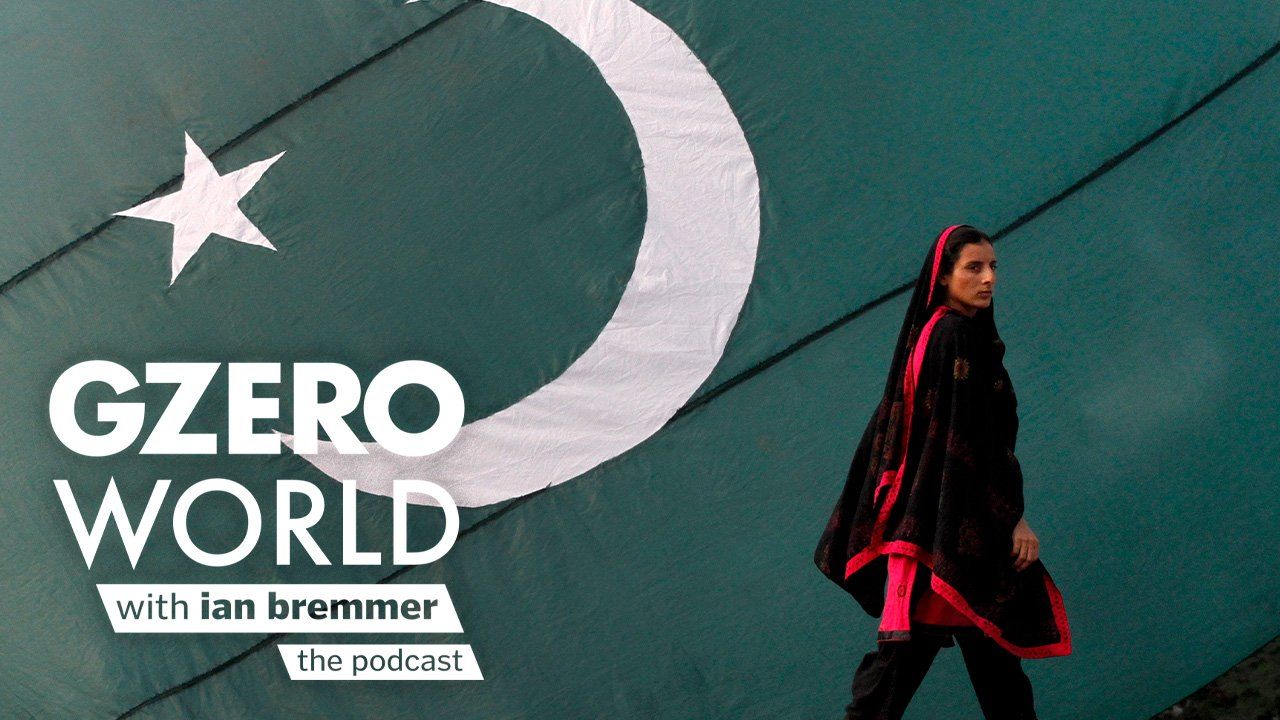GZERO World with Ian Bremmer Podcast
August 16, 2025
After nearly eight decades of on-again-off-again conflict, India and Pakistan neared the brink of all-out war last spring. The intense, four-day conflict was an unsettling reminder of the dangers of military escalation between two nuclear-armed adversaries. Though the ceasefire was reached and both sides claimed victory, Delhi and Islamabad are still on edge and tensions remain high. On the GZERO World Podcast, former Pakistani Foreign Minister Hina Khar joins Ian Bremmer to discuss Pakistan’s response to India’s strikes, which she believes were unjustified, and why Pakistan needs to defend itself from further aggression.
One fifth of the world’s population lives on the Indian subcontinent, and Khar says putting them at stake because of a political conflict is dangerous because “you do not know how quickly you can go up the escalation ladder.” Bremmer and Khar also discuss the US role in mediating the conflict with India, Pakistan’s domestic and economic challenges, its strategic partnership with China, and the dangers for global security if the world abandons a rules-based international order.
“As someone who was representing this country as foreign minister, I used to wonder, why were we reduced to eating grass to become a nuclear power?” Khar says, “And now, that is the only thing providing deterrence and security against a country which feels it can attack us anytime, any day.”
Subscribe to the GZERO World Podcast on Apple Podcasts, Spotify, Stitcher, or your preferred podcast platform, to receive new episodes as soon as they're publishedMore For You
Tune in on Saturday, February 14th at 12pm ET/6pm CET for the live premiere of our Global Stage from the 2026 Munich Security Conference, where our panel of experts takes aim at the latest global security challenges.
Most Popular
- YouTube
In this Quick Take, Ian Bremmer weighs in on the politicization of the Olympics after comments by Team USA freestyle skier Hunter Hess sparked backlash about patriotism and national representation.
British Prime Minister Keir Starmer delivers a speech at Horntye Park Sports Complex in St Leonards, Britain, February 05, 2026.
Peter Nicholls/Pool via REUTERS
In July 2024, Keir Starmer won the United Kingdom’s election in a landslide. It has been downhill ever since, with Starmer’s premiership sullied by economic stagnation, intraparty fighting, and a lack of vision for the country.
© 2025 GZERO Media. All Rights Reserved | A Eurasia Group media company.
